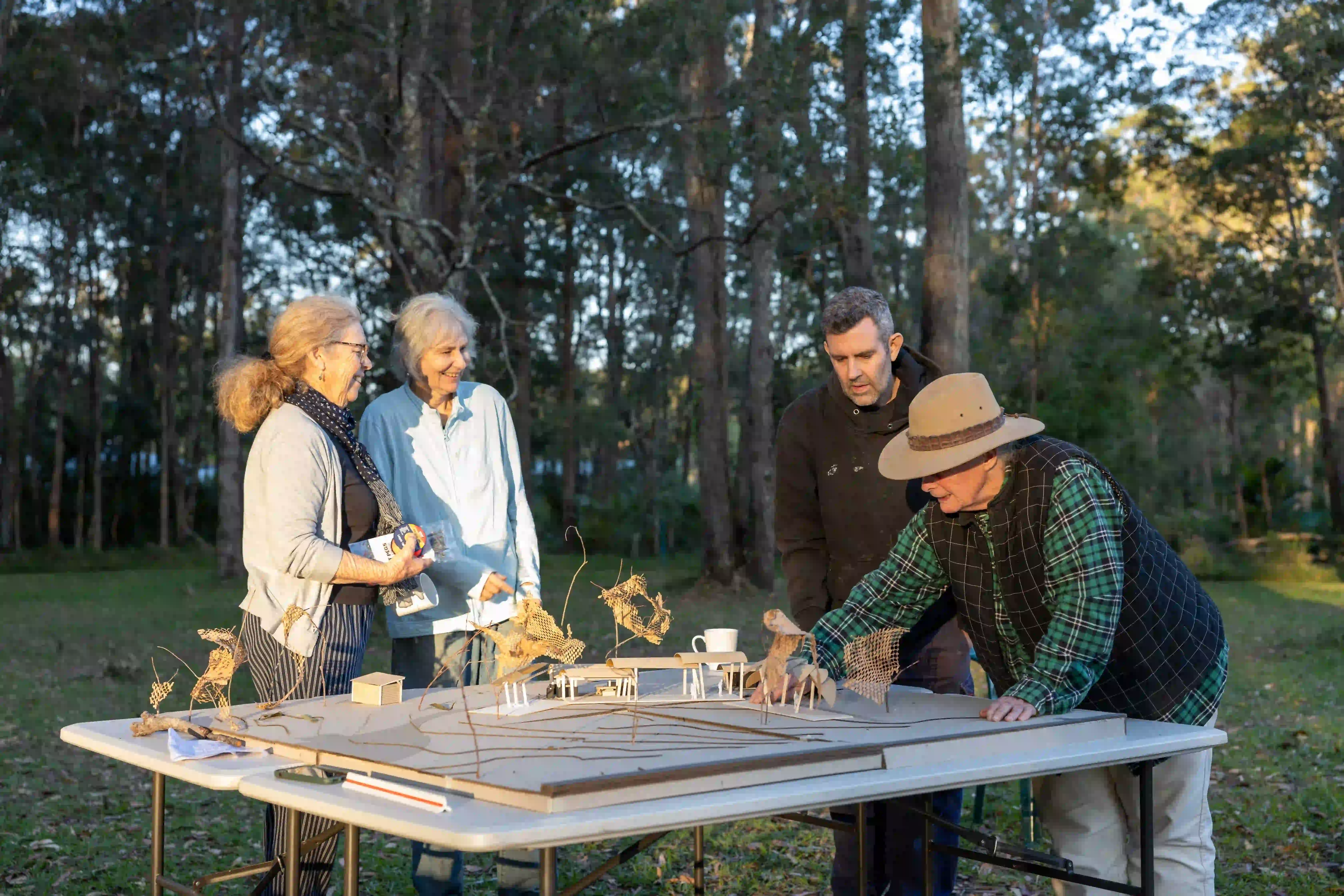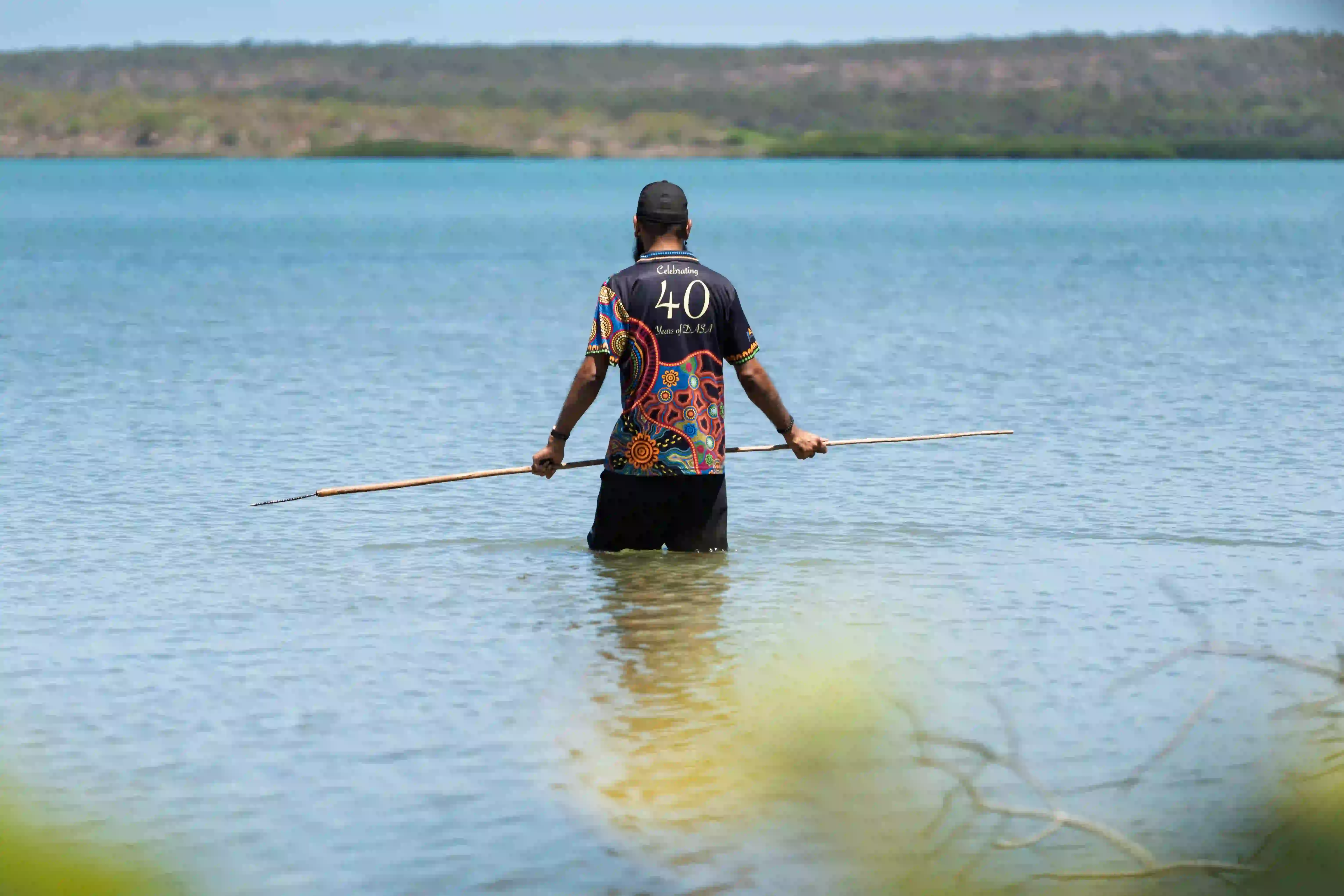There is a generosity of spirit on country. There are incredibly talented children and young people, proud of their art, music, singing, dance, language and culture. There are high school students with portfolios of vocational certificates. There are education liaison officers and health workers wrapping around children, families and communities to ensure the conditions are addressed to support educational engagement.
There are incredible First Nations leaders who are community builders, run organisations and initiatives, deeply care for country, are story holders and tellers, knowledge keepers and healers. There are generations of impressive leaders, a strong shared commitment to build capability and a supportive ecosystem of peers. There is an innate ability to see connections and to live in, work and thrive in complexity. There is incredible wisdom, deep listening and innovation and there are sophisticated governance structures.
I’m reminded of this whenever I have the privilege to spend time on country with our First Peoples. And this is what I found when I spent time up in the Cape with young people, leaders and elders on invitation from Cape York Partnership recently.
The incredible relationships and successes that ‘buck’ the trends of statistics on different countries don’t come easily. There are many challenges. There are resource constraints. There is a necessity to be agile and respond to changing conditions and circumstances. There is a need for investment in community development, economic development, First Nations self-determination infrastructure and backbone supports (the ideas are there, but the investments aren’t).
There are barriers within systems that reinforce conditions that keep cycles of intergenerational disadvantage in play or that Aboriginal leaders are trying to find other funding to address. There are rules around social security payments that keep young mums in a position where they have to ‘choose’ either school or parenting payments; there are missing health checks and accessible follow-ups for primary school children that hold kids back from learning; there are health systems that preclude social and emotional wellbeing funding that would help young people stay well and able to learn in school.
I could go on.
So many of these issues reinforce that people and places are incredibly wise and resourceful, that when First Nations peoples are self-determining, they get incredible outcomes AND there are conditions that need to be addressed to enable them to do more of this work to enable intergenerational thriving.
It is such a gift to be invited on country and to be able to listen to stories, successes, knowledge, challenges, opportunities, responsibilities and connections. I was reminded here and, when I returned to Sydney by the wonderful adaptive leadership guru, Jennifer Garvey Berger, of the power in ‘listening to learn, not to fix’ and to seek and see different perspectives and stories than the ones we ‘think we know’. Indeed, one of the comments that has stayed with me since I got back from the Cape, is Uncle Robbie’s comment when we had lunch together on Guugu Yimithirr country: “The most dangerous people are the people who don’t know that they don’t know.”
Too right, Uncle Robbie, I can’t know what a community values, aspires to, the barriers they face, the resources and skills they have, the opportunities, the needs and who or how or in what order to best go about it. But communities can and do know what they need. We just need to listen, to back them, to walk alongside them.
We’ve been working to do just that. In the 2022-23 financial year, and in the first quarter of FY2023-24, PRF granted $62.7 million to First Nations-led organisations who are working to achieve better outcomes for First Nations people. Funding of this nature historically and into the future is central to PRF’s ambitions to support self-determination for Indigenous-led organisations and communities.
Why? Because better outcomes are achieved when the voices of those affected are heard.
Australia is breathtakingly beautiful in its geography. It is complex in its hopes, opportunities, aspirations and needs. We are a country with First Nations peoples who are generous in their spirit, hold ancient knowledge, are patient beyond measure, and hold deep connection with people, families, communities and country as a state of being and the oldest living culture in the world. The possibilities of what might this country achieve if we collectively back First Nations peoples and communities to be self-determining holds so much promise.
No items found.





.webp)




